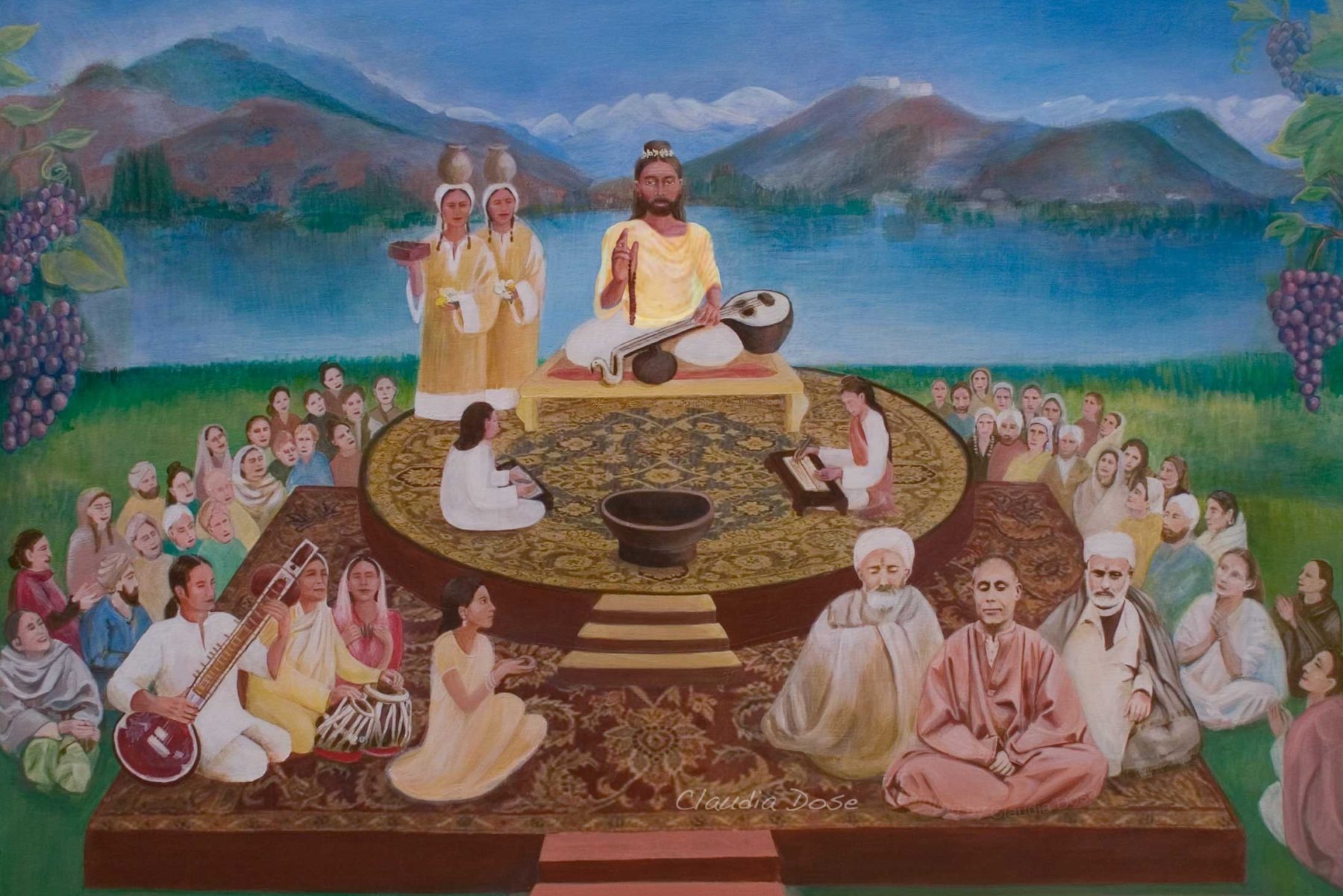Tantraloka
Of all the philosophical system emanating from the east Kashmir Shaivism stands alone in its subtle elucidation of the theory and practice of spirituality. Aptly labeled ‘the mystical geography of awareness’, the agamas(1) of Shaivism describe in microscopic detail the development of human consciousness from the grosses state of ignorance to the subtlest state of universal God consciousness.
Drawing from these ancient scriptures–many of which are now lost–the great Shaiva master Abhinavagupta (10 CE), fashioned the monistic tradition known as Trika Rahasyam(2). After attaining God realization Abhinavagupta states that out of curiosity he sat at the feet of many masters and like an industrious bee collected the nectar of the prominent philosophical traditions of his time. Completing this venture he returned to his own disciples and spontaneously sang thirty-seven philosophical hymns in the same number of days.
This encyclopedic text became Abhinavagupta’s greatest philosophical work entitled Tantraloka. In thirty-seven chapters he unfolded the petals of his heart lotus of knowledge explaining the process of creation and evolution of the universe in term of the expansion of Shiva’s consciousness. He laid bare the secrets of the monistic system know today as Kashmir Shaivism.
In his first chapter Abhinavagupta states clearly that he was impelled by Lord Shiva, his masters, and his closest disciples, to compose Tantraloka. In verse 284 of that same chapter he states:
“That person who has read, achieved and understood the depth of these thirty-seven chapters becomes one with Bhairava-Lord Shiva.” ~Swami Lakshmanjoo
In composing Tantraloka Abhinavagupta drew inspiration from the Malinivijaya tantra(3), a text so cryptic in places that scholars of that time were at a loss to understanding it. In shedding light on the Malinivijaya(4), Abhinavagupta gave profound and detailed descriptions of both spiritual practice and theoretical philosophy; there is nothing to parallel these writings in existence today.
About two hundred years after Abhinavgupta’s passing a commentary on Tantraloka was composed by a scholar named Jayaratha. To this day this commentary has been held as an authoritative work on Tantraloka. Swami Lakshmanjoo was one of the few masters to refute this commentary. Being a direct descendent in the line of masters of the oral tradition of Kashmir Shaivism he pointed out that Jayaratha was not actually from this tradition, and though in places his commentary was brilliant, in others it was quiet misleading.
In the mid 70’s Swami Lakshmanjoo started an English translation of Tantraloka(5). Surround by a few western disciples and the occasional visiting scholar from universities both in India and abroad, it took almost five years to complete the first eighteen chapters. In simple terms he explained the cryptic text, emphasizing in many places, that without direct experience and a connection to the oral tradition of Kashmir Shaivism it was almost impossible to understand Abhinavagupta’s words. He added that Tantraloka was essentially a book for masters.
The essence of these first eighteen chapters of Tantraloka were published in 1985 under the title of “Kashmir Shaivism – The Secret Supreme”.
Om Namah Shivaya!
———————————-
1. The agamas or tantras of the monistic school of Shaivism are always presented in the form of a dialogue between Shiva in the form of Bhairava and his divine consort Parvati in the form of Bhairavi.
2. Trika Rahasya – the secret of the trinity of Shiva, Shakti and Nara-(individual).
3. Tantraloka–to shed light on the knowledge of tantra. The essence of the first 14 chapters of Tantraloka are contained in the book “Kashmir Shaivism-The Secret Supreme” by Swami Lakshmanjoo.
4. The Malinivijaya itself was extracted from a more ancient text called the Siddhayogeshvarimata-(now extinct).
5. Tantraloka means to shed light on the knowledge of tantra.

11 comments for “Tantraloka”